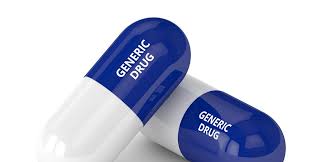Taro, Sandoz and Apotex Pay $447.2 Million to Settle False Claims Act Liability for Price-Fixing of Generic Drugs

The healthcare industry faces cascading risks – one risk flows to another with compounding financial results. Three generic drug companies just experienced this cascading liability.
As part of the Justice Department Antitrust Division’s investigation of the generic drug industry, Taro, Sandoz and Apotex settled criminal antitrust cases by entering into a deferred prosecution agreement, paying a financial settlement and agreeing to cooperate with the ongoing investigation.
These three companies were then required to enter into settlement agreements to resolve False Claims Act charges arising from violation of the anti-kickback statute (AKS).
Between 2013 to 2015, the three companies paid and received compensation prohibited by the AKS through illegal agreements on price, supply and allocation of customers for certain generic drug manufacturers.
Taro agreed to pay $213.2 million relating to a variety of drugs, including etodolac, a nonsteroidal anti-inflammatory drug used to treat pain and arthritis, and nystatin-triamcinolone cream and ointment, a combination of an antifungal medicine and steroid used to treat skin infections.
Sandoz agreed to pay $185 million relating to a variety of drugs, including benazepril HCTZ, used to treat hypertension, and clobetasol, a corticosteroid used to treat skin conditions.
Apotex agreed to pay $49 million for its sale of pravastatin, a drug used to treat high cholesterol and triglyceride levels.

Each company also entered into a five-year corporate integrity agreement (CIA) with the HHS-OIG. The CIA require the companies to conduct internal monitoring and price transparency provisions, as well as risk assessment programs, executive recoupment provisions and compliance-related certifications from company executives and board members.
The application of the AKS to illegal cartel activities is fully justified. The False Claims Act prohibits kickbacks paid to companies to further anti-competitive conduct.
AKS prohibits companies from receiving or making payments in return for arranging the sale or purchase of items such as drugs for which payment may be made by a federal health care program. All three companies previously entered into DPAs and agreed to pay fines for their collusive conduct: Taro paid a criminal penalty of $205.6 million; Sandoz paid $195 million and Apotex paid $24.1 million.

The Justice Department’s criminal antitrust investigation is continuing. To date, DOJ’s investigation has resulted in charges against seven companies and four senior executives for conspiring to fix prices, rig bids and allocate customers in the generic pharmaceutical industry.
Of the four senior executives charged, three have pleaded guilty. Of the seven companies charged, five have admitted to the charged conduct and entered into DPAs to resolve the charges. Collectively, these five companies have p[aid a total of $426 million. Taro’s settlement for $205.6 million was the largest penalty ever imposed against a company for domestic criminal cartel conduct.















